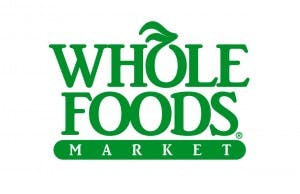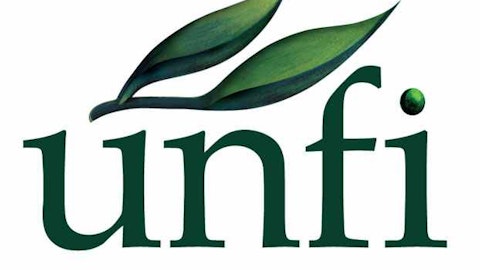The organic food movement is no longer just for hemp-clad followers of Jerry Garcia. Nowadays the business saw sales of $35 billion and 10% growth in 2012. According to Market Line, a business information company, the organic food market is expected to grow 50% over the next five years. In 2013, the market is expected to grow 8%, versus 2% in the conventional food market. As the market shows no signs of slowing, we look at stocks that are setup to capitalize on the organic trend.
The Leader
Whole Foods Market, Inc. (NASDAQ:WFM) is the leader in organic food retailing. The company operates a chain of natural and organic food supermarkets totaling 349 stores in the US, UK, and Canada. Beyond food, many of the stores also have extensive beer and wine offerings.

The popularity of the stores suggests that there is still room to grow in the US. The company opened 25 new stores during the 2012 fiscal year, a record number of new openings. They plan for record growth through 2014 and currently have 79 stores in development. While the new store openings offer growth opportunities, Whole Foods Market, Inc. (NASDAQ:WFM) also saw identical store sales grow by 8.4% during 2012.
The company currently trades at a P/E of 37.46, so the stock is pricing in quite a bit of growth. However, given the quality of the products, overall customer demand, and the growth in the organic market, Whole Foods remains an appealing investment opportunity. The company paid a special $2 dividend in 2012 and recently announced a two-for-one stock split to take effect May 29, 2013.
The Supplier
The Hain Celestial Group, Inc. (NASDAQ:HAIN) manufactures, markets, distributes, and sells natural and organic products. The company offers an array of products from baby food to sunscreen. The company was founded in 1993 and sells products in approximately 50 countries.
The Hain Celestial Group, Inc. (NASDAQ:HAIN) plans to grow the business through internal development and strategic acquisitions. The company has made many acquisitions over the years and considers it an integral part of its business. Three major 2012 acquisitions in Canada, the UK, and Ireland greatly expanded the company’s global footprint. Sales outside of the US represented 28% of total sale in 2012 versus 19% in 2010. Over that same period, total sales grew by 54.9%. The company also has impressive operating margins of 10.92% versus an industry average of 8.22%.
The Hain Celestial Group, Inc. (NASDAQ:HAIN) currently trades at a P/E of 24.4 versus its five-year average of 27.70. The company does not pay a dividend and the short interest in the stock is a bit concerning at 15.45%.
Another Supplier
United Natural Foods (NASDAQ:UNFI) engages in the distribution and retail of natural, organic, and specialty foods, as well as non-food products in the US and Canada. The company distributes approximately 65,000 products and also operates 13 retail stores in the US and one in Canada.
United Natural Foods, Inc. (NASDAQ:UNFI) is the primary distributor to Whole Foods Market, Inc. (NASDAQ:WFM) and has held that role for more than 14 years. The company amended it distribution agreement in 2010 to serve as the primary distributor for another seven years. The company has also seen extensive growth with net sales growing by 15.6% between fiscal year 2012 and fiscal year 2011.
The company currently trades at a P/E of 27.10 and does not pay a dividend.
Foolish Conclusion
All three of these stocks represent interesting plays on the growing organic food markets. While I think all three are potentially good investments, I favor United Natural Foods, Inc. (NASDAQ:UNFI). The company has a much lower P/E than Whole Foods Market, Inc. (NASDAQ:WFM), but as the primary distributor, the company will grow and benefit from Whole Foods’ expansion. The Hain Celestial Group, Inc. (NASDAQ:HAIN) would seem like a good investment, but the short interest in the stock is worrisome.
The article Feasting on the Organic Movement originally appeared on Fool.com and is written by John Timmes.
Copyright © 1995 – 2013 The Motley Fool, LLC. All rights reserved. The Motley Fool has a disclosure policy.
